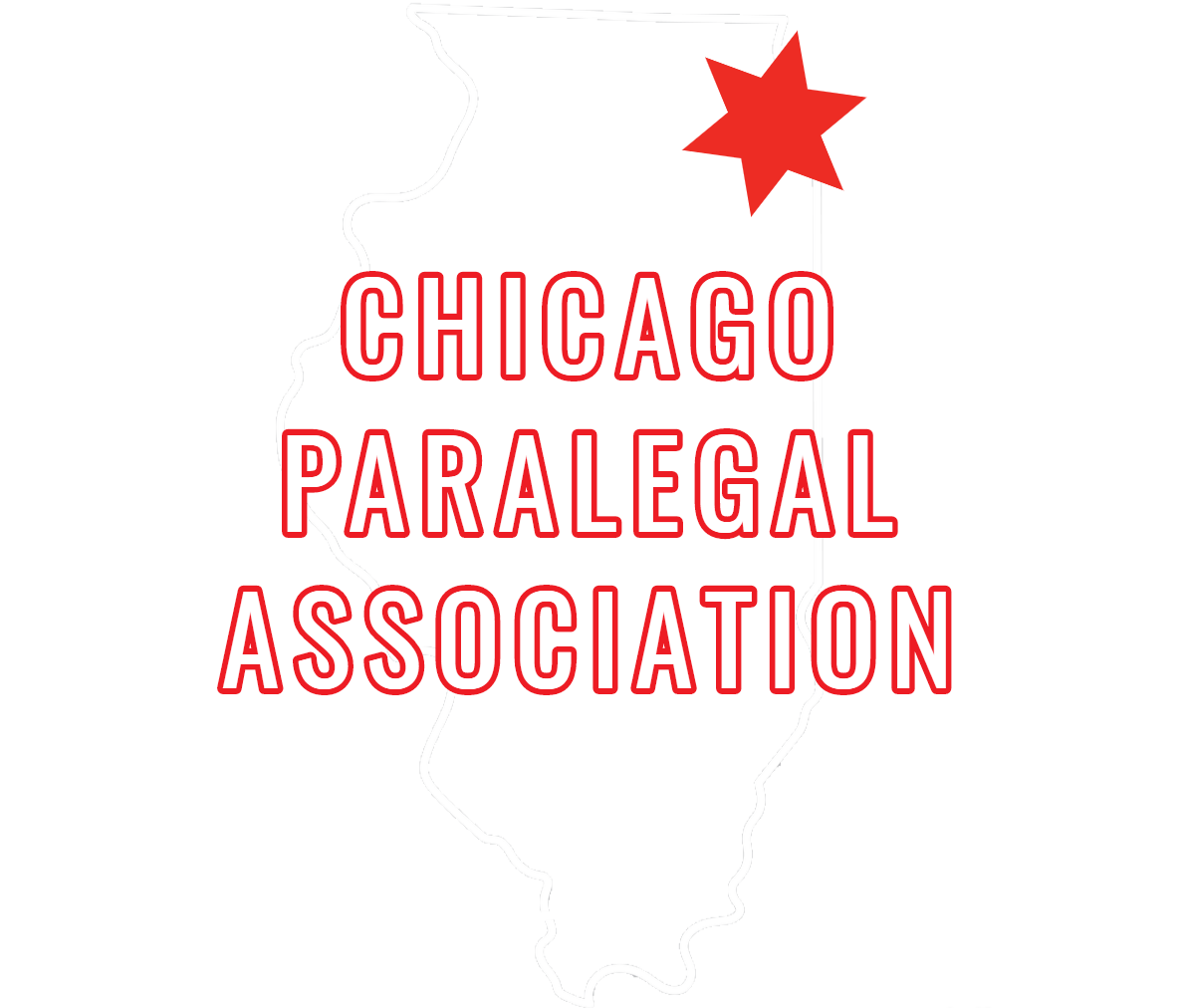Chicago Paralegal Association’s position statement in opposition to the current version of Recommendation #5:
Recognize a New Licensed Paralegal Model so that Lawyers Can Offer More Efficient and Affordable Services in High Volume Areas of Need
The Chicago Paralegal Association is the leading professional association in Chicago dedicated to elevating the standards and ethics of all Illinois paralegals.
CPA strongly disagrees with the Committee’s comment that “there is little evidence that there is a shortage of providers of legal services in most communities.”
According to the Illinois Equal Justice Foundation (IEJF), “Illinoisans need access to legal help now more than ever. Civil legal problems have spiked in the wake of the COVID-19 outbreak, especially for people already struggling to make ends meet and communities of color.” Illinois Legal Aid Online (ILAO) reports a “1040% increase in use of its unemployment tools and 1084% increase in use of its emergency food stamp resources.” https://iejf.org/press-room/news-releases/illinoisans-need-civil-legal-help-now-more-than-ever/
CPA applauds the work of the Committee in realizing that better utilization of paralegals can help address and support access to justice efforts.
Pursuant to 5 ILCS 70 Section 1.35, "[P]aralegal means a person who is qualified through education, training, or work experience and is employed by a lawyer, law office, governmental agency, or other entity to work under the direction of an attorney in a capacity that involves the performance of substantive legal work that usually requires a sufficient knowledge of legal concepts and would be performed by the attorney in the absence of the paralegal.”
CPA was disappointed see the suggestion of a new paralegal category and the many restrictions and barriers created in Recommendation #5 by the Optimizing the Use of Other Legal Professionals Committee in the report of the CBA/CBF Task Force on the Sustainable Practice of Law & Innovation.
CPA is a strong advocate of elevating the standards and credentials of paralegals to expand access to justice, but it is our opinion that the Task Force’s Recommendation #5 misses the mark by creating an unnecessary “Licensed Paralegal” category, and adding layers of unnecessary rules and regulations. This category is simply not needed to support access to justice efforts.
The Recommendation purports to authorize “Licensed Paralegals to provide a broader range of client services,” however all services would still be performed under the direction and supervision of a licensed attorney.
Licensed Paralegals would be subject to discipline and withdrawal of their license by the Attorney Registration and Disciplinary Commission, however any and all acts performed would still be performed under the direction and supervision of a licensed attorney.
Licensed Paralegals would only perform allowed services in limited areas such as “where there is documented high unmet need.”
The Recommendation further mandates that any lawyer or law firm who employs this category of paralegal would be required to carry malpractice insurance to cover the acts of the paralegal, which would be performed under the direction and supervision of a licensed attorney.
Paralegals already work under the direction and supervision of licensed Illinois lawyers, and Illinois lawyers are not required to carry malpractice insurance to employ any paralegal.
Having certified paralegals available to provide limited legal services directly to the public would facilitate improved access to the legal system, and expand the pool of providers able to serve consumers with legal services.
Paralegal certification is a process in which applicants who satisfy strict requirements, including completion of an approved educational program, passage of a qualifying exam (which includes ethics) or documented work experience, are certified. Certified paralegals have the demonstrated knowledge, skill, and proficiency to perform substantive legal work under the direction and supervision of a licensed lawyer. Certification is distinct from a certificate of completion, which generally is awarded upon successful completion of a paralegal educational program.
While paralegals in Illinois are not currently required to be certified, they do follow rules of professional conduct and ethics as set forth by the state, the American Bar Association, and the national paralegal associations, which require members to adhere to standards and a code of ethics.
Our national paralegal organizations have already defined the education and work experience just to qualify to sit for a certification exam.
In fact, according to the website of NALA The Paralegal Association:
NALA is the only National Commission for Certifying Agencies (NCCA) accredited paralegal certification program. NALA’s Certified Paralegal program has been recognized both nationally and internationally for over 40 years! Our CP credential has been acknowledged by the American Bar Association as a mark of high professional achievement, and more than 47 other paralegal organizations and numerous bar associations also acknowledge the credential as the paralegal standard.
Further refinement and modification of this Recommendation should, at a minimum, be assisted by review and comment from paralegals, certified paralegals, paralegal associations, and paralegal educators.
We do agree with the Committee that allowing paralegals to appear in court for routine status hearings or preliminary court appearances, and to assume an expanded role in the areas of family law, evictions, and small consumer debt matters, would allow the lawyer to focus their attention on the more complex aspects of a case. This would also have a meaningful impact on addressing the access to justice issue, and protect the public, since this expanded paralegal role would still be under the direction and supervision of a licensed attorney.
Board of Directors of the Chicago Paralegal Association
Tisha Delgado, President
Kristie Black Hansen, Secretary and Director of Operations
Kristina Judge, Vice President and Director of Membership
Gabriel Evelyn, Director-At-Large
Cecily Boley, Director-At-Large
.png)
